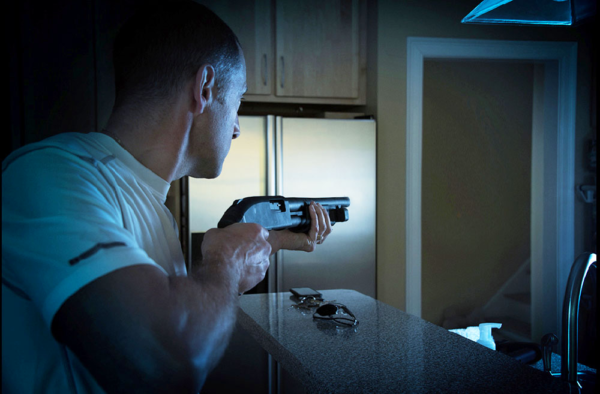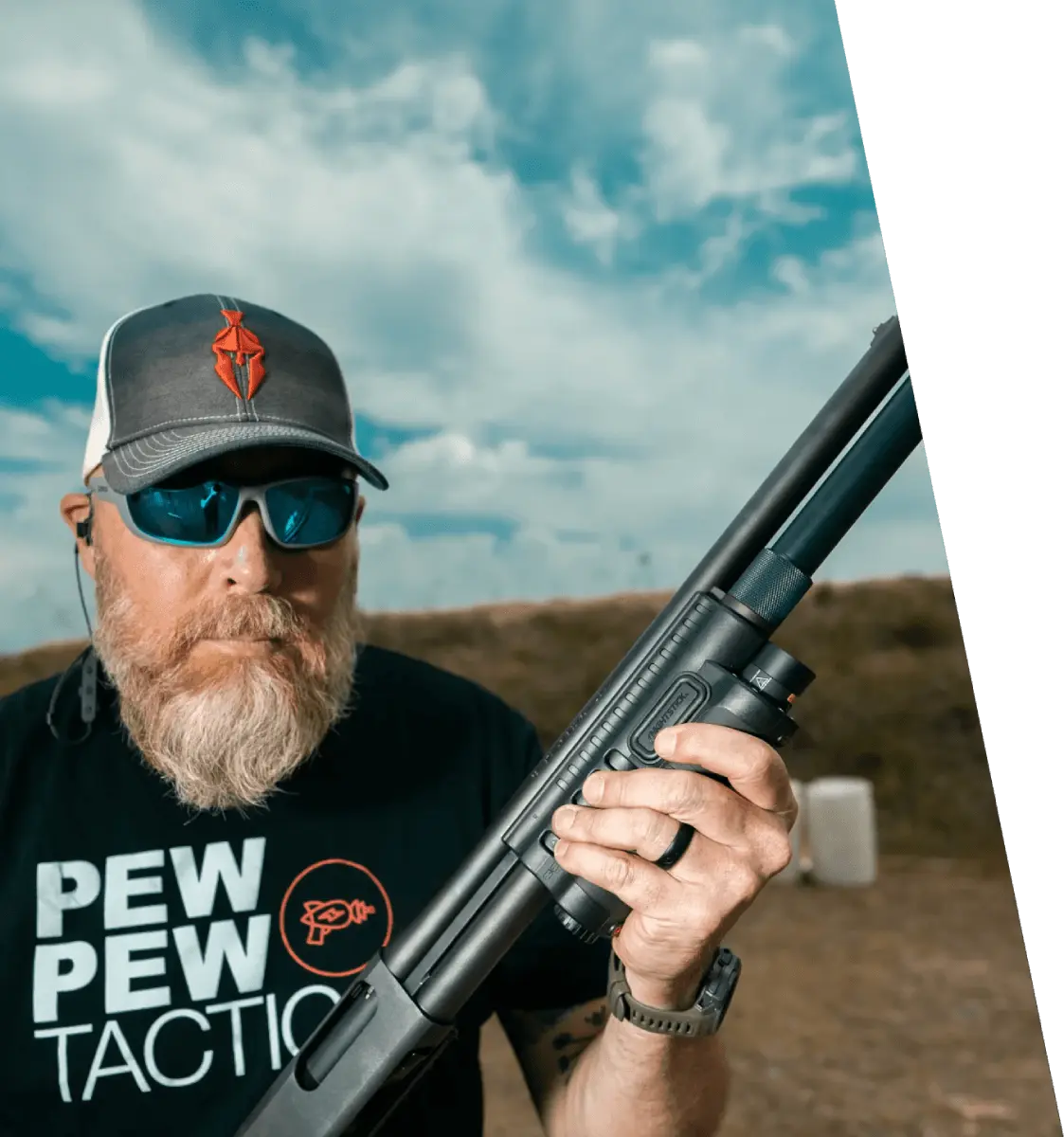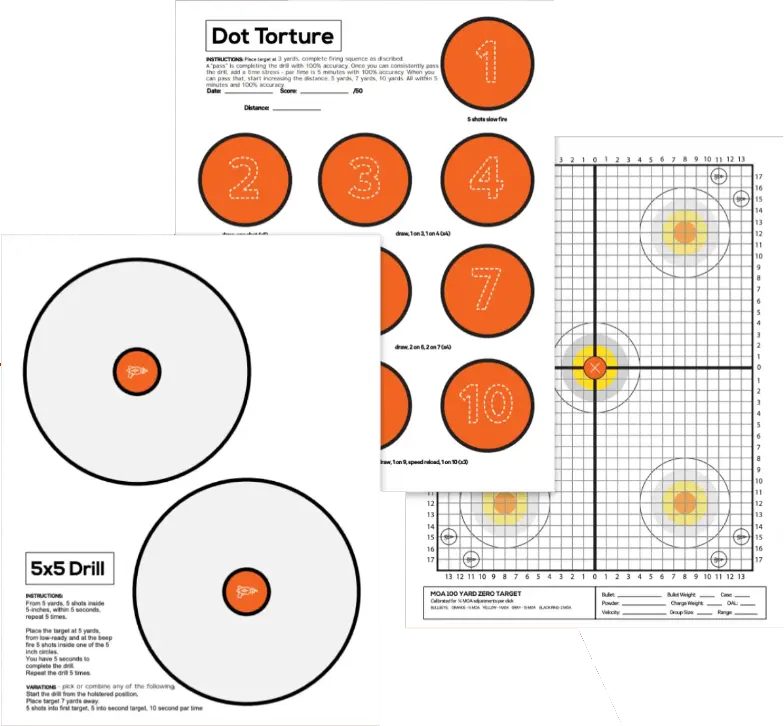
How to buy a gun
Let’s get straight to it! In Indiana, there are two slightly different sets of rules when it comes to buying handguns and buying long guns.Buying handguns
No permit is required to buy a handgun in Indiana. That doesn’t mean there are no other requirements though! To buy a handgun in Indiana, you must:- Be 18 or older;
- Present state ID; and
- Submit to an instant background check.
- Have been convicted or a felony;
- Have been convicted of domestic battery;
- Are a drug abuser or under the influence of a drug;
- Are an alcohol abuser or are intoxicated; or
- Are mentally incompetent.
If that sounds like too much work…
You can make the process even less painless by avoiding the background check in some situations. A background check is not required for:- Law enforcement officers;
- Indiana CCW permit holders;
- Firearms importers, collectors, manufacturers, or dealers; and
- Private sales between individuals.

But be careful!
Even though the state only requires you to be 18 or older to buy a handgun, federal law requires you to be 21 or older to buy a handgun. What that means is a licensed firearms dealer would not be able to sell you a handgun unless you are 21 or older, but a private seller can still legally sell you a handgun.One more thing…
With all these laws on buying handguns, there is one big exception when it comes to antique and replica handguns. Any firearm that is not designed to use fixed cartridges or fixed ammunition, or is made before 1900, is not covered by the Indiana handgun laws. That means, if you come across a handgun from 1898, you can buy it just like any other item you would buy in a store, and not have to jump through all the hoops you normally would in buying a handgun.
Don’t forget about long guns!
The laws regarding purchasing long guns is almost identical to the ones for handguns, with a few important differences. To buy a long gun, you must:- Be 18 or older;
- Present ID (of any state!)
- Submit to an instant background check.
But what about the children??
If you are under 18, you are considered a child in the eyes of the state (sorry). But that doesn’t mean you can’t have fun too. You can own a handgun if your parent or guardian transfers it to you. Essentially, this is a private sale, but it is limited to a sale between a parent or guardian, and the person under 18. So if you want to own that Beretta before you turn 18, be nice to your parents! If you can’t convince your parents to transfer a handgun to you, that’s ok too. You can still use a firearm in certain situations. A person under 18 is allowed to possess a firearm if he is:- Attending a hunter safety or firearms safety course and an adult is supervising the person during the course;
- Target shooting at a shooting range or area where shooting is not prohibited and supervised by an adult while at the range;
- Participating in an organized firearms competition or practicing for a performance by an organized group that uses firearms as part of the performance;
- Hunting or trapping (with a valid license!);
- Travelling to or from any of the activities listed above, with an unloaded firearm;
- On property controlled by the person’s parent, adult family member, or legal guardian, with permission from the parent or guardian to have the firearm;
- At home, and has permission from a parent, adult family member, or legal guardian, to have the firearm.
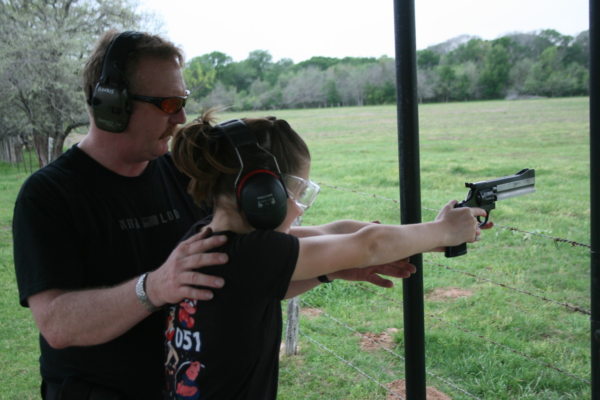
So now what?
Once you’ve got your new guns in hand, you’ll need to be careful about where you take it!Carrying that handgun
Indiana requires a permit for both open carry and concealed carry of a handgun. That doesn’t mean you need a permit everywhere you go, though. You can carry a handgun without a permit if:- You are carrying it on on property you own, lease, rent, or is legally under your control;
- You are carrying it while legally on property owned or legally controlled by someone else, and:
- You have permission from that person; or
- You are attending a firearms related event on the property (gun show, training course, gun repair, etc.)
- You are at a shooting range; or
- You are hunting (with a valid license).
That’s not all
Because open and concealed carry require permits, you will need to be careful when transporting your firearms in your car. In order to (legally!) transport your handgun in a car, it must be:- Unloaded;
- Not readily accessible; and
- Secured in a case.
Bring your rifle along too!
After you’ve made sure you followed all the laws on carrying and transporting your handgun, you’ll want to be careful about your long gun too. Or not. Indiana does not specifically address carrying or transport of long guns, so none of the laws on carrying or transporting that apply to handguns would matter here. Since there’s no laws about long guns, you can do whatever you want! Well, sort of. Don’t forget to follow the laws of common sense when it comes to your long guns. Just because there are no specific laws on how to transport your rifle, you probably don’t want it loaded in the backseat pointed at your head while you’re cruising around town.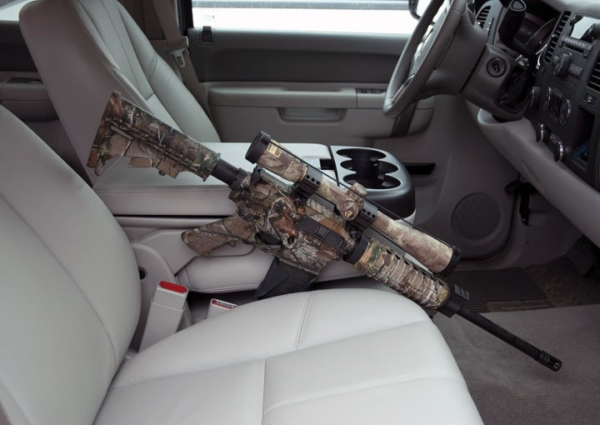
Out of ammo!
Unlike most other states, Indiana has a few restrictions when it comes to handgun ammunition. It is illegal to have, transfer, or make handgun ammo that has a metal core with a plastic outer coating. Nylon-coated ammo or plastic shot capsules are ok though. And don’t worry if any of your rifle or shotgun ammo meets the “metal core with plastic coating” description, because the law only applies to handgun ammo. But maybe don’t put the ammo in your handgun.When can you use your gun?
Indiana is very gun-friendly when it comes to defending yourself, and has adopted the “Stand Your Ground” policy that says you do not have a duty to retreat in most situations. In fact, the laws are so gun-friendly that they even apply if police illegally enter your home! Under Indiana law, you can use reasonable force against someone to protect yourself or another person from the imminent use of unlawful force. You do not have a duty to retreat if you reasonably believe deadly force is necessary to prevent:- Serious bodily injury to yourself or someone else;
- A felony; or
- Unlawful entry or attack on your house or car.
- Someone from trespassing onto property owned by you, a member of your immediate family, or or someone you have authority to protect;
- An attempt or actual hijacking of an airplane (!).
Watch out!
You are not justified in using deadly force, if:- You provoked the illegal action of the other person with the intent to harm them;
- You initiated the conflict, and did not indicate your intent to withdraw from the conflict;
- The police officer is acting within his legal duties (i.e. entering with a warrant).
